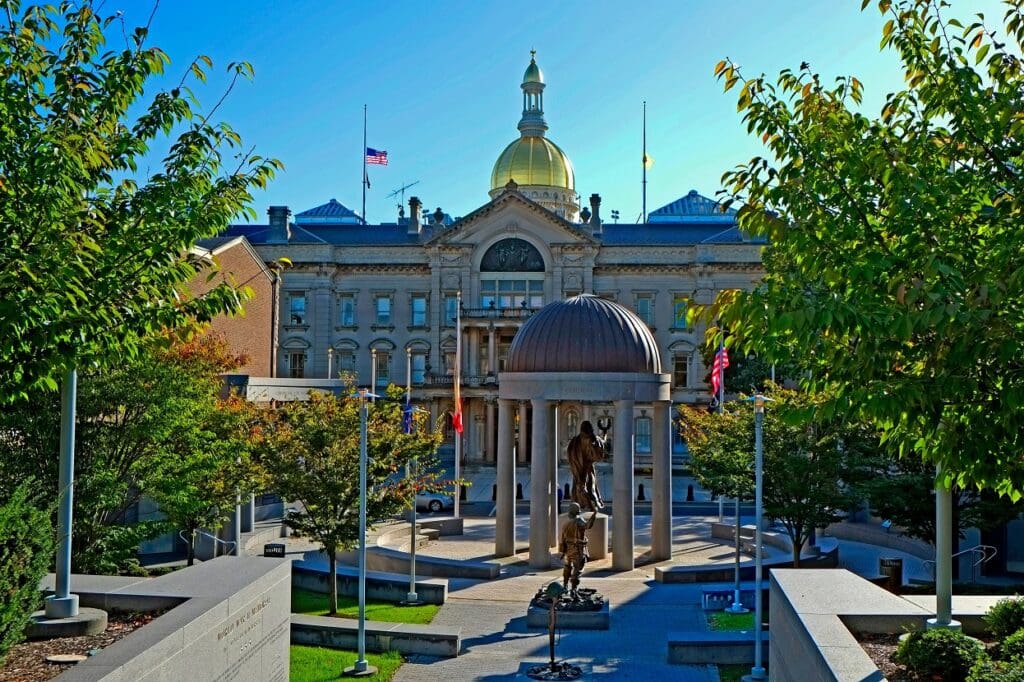The federal government officially shut down this week after lawmakers in Washington failed to reach an agreement on a short-term funding plan. The move will sideline as many as 750,000 federal employees across the country, including thousands from New Jersey. While some workers will be furloughed, others could face permanent job losses, officials warned. New Jersey already faces a massive office vacancy, which may only worsen.
Why the Shutdown Happened
Republicans introduced a temporary measure that would have kept federal programs funded through November 21. Democrats, however, pushed back, demanding that the bill also restore Medicaid cuts made in this summer’s spending package and extend Affordable Care Act subsidies to help families afford coverage.
The Senate voted on the proposal Tuesday, but the measure fell short of the 60 votes needed to move forward in a 55-54 tally.
How NJ’s Senators Responded
Both of New Jersey’s Democratic senators voted against the bill.
- Cory Booker (D-NJ): “We just went into a shutdown because Republicans refused to work with us to deal with the health care crisis that they created,” Booker said in a recent video.
- Andy Kim (D-NJ): He echoed that frustration on social media, saying Republicans “officially forced us into a government shutdown.”
On the other side, Congressman Chris Smith (R-NJ-4) placed the blame on Democrats, calling the shutdown “a direct result of Senate Democrats’ refusal to compromise and pass the clean continuing resolution.”
While three of their colleagues crossed the aisle, @SenBooker and @SenatorAndyKim chose partisanship and voted to shut down the government tonight.
That’s disappointing. A shutdown has real consequences for families and communities in New Jersey, and they will have to answer for… pic.twitter.com/PbSo9UjLPf
What Stays Open
Despite the funding lapse, several critical services continue operating:
- National security and safety: FBI agents, CIA officers, and air traffic controllers remain on duty.
- Military: Armed Forces stay active.
- Social programs: Social Security checks and Medicare claims continue to be processed.
- Veterans services: VA medical centers, clinics, and benefits programs remain open.
What Closes or Slows Down
Many federal offices will shutter until Congress passes a new spending plan. Agencies are required to follow closure plans, which involve deciding which employees will stay on the job and which will be furloughed. Some examples:
- CDC & NIH: Disease monitoring continues, but public health communication and new patient admissions (outside of urgent cases) are paused.
- FDA: New drug and device applications are not processed.
- Education Department: Most staff will be furloughed, though federal student aid will still be distributed.
- Transportation Department: Hiring for air traffic controllers and security background checks will stop.
Economic Effects
The shutdown is expected to cause disruptions nationwide within days. Federal employees without paychecks will feel the pinch first, but economists warn the impact could ripple into consumer spending, travel, and business investments. Even the release of the government’s monthly jobs report is now in question.
The New Jersey Digest is a new jersey magazine that has chronicled daily life in the Garden State for over 10 years.
- Staffhttps://thedigestonline.com/author/thedigeststaff/
- Staffhttps://thedigestonline.com/author/thedigeststaff/
- Staffhttps://thedigestonline.com/author/thedigeststaff/
- Staffhttps://thedigestonline.com/author/thedigeststaff/


